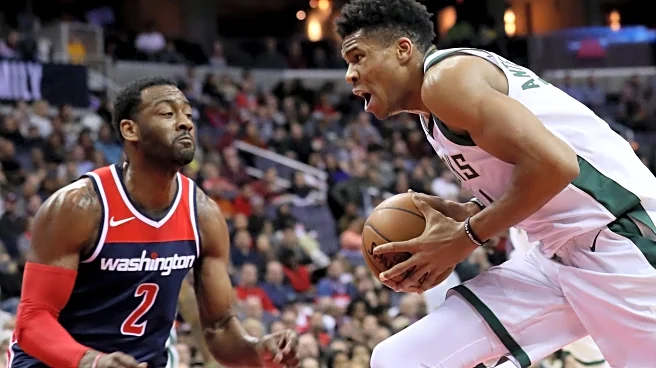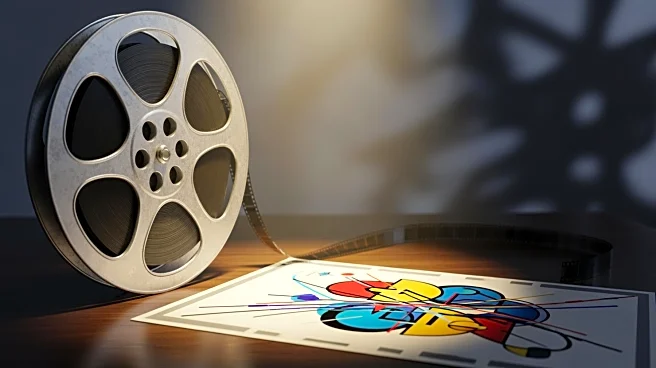On August 19th,I read that John Wall announced his retirement from the NBA. I hadn’t really thought about John Wall in a minute, but watching his announcement, a bunch of nostalgia came flooding back to me, especially after I reintroduced “Do the John Wall” back into my playlist rotation. If you went to the right high school gatherings or college parties around the 2010s, you might have heard the Troop 41 rap song “Do the John Wall.”
The catchy club-banger made sure to keep basketball in the forefront.
This song was my introduction to John Wall. Back then I was a casual basketball fan and was not familiar with all the players in the league, especially if they weren’t on the Bucks. With this song in my head, I decided to check out some of John Wall’s high school highlights online, and was pretty impressed by what I saw.
With John Wall’s retirement, it’s worth reminding some younger NBA fans who he was. Wall was an influential player that made an impact in all levels of the game. In the start of his career, he revolutionized how players marketed themselves by having arguably the most iconic high school mixtapes of that era (which introduced me to how skilled of a player he already was at a young age). He then developed into an impressive and decorated collegiate athlete in his one and only year at the University of Kentucky in 2010: the Adolph Rupp Trophy winner, SEC Player of the Year, USBWA National Freshman of the Year, and consensus first-team All-American. Finally stepping into the league as a dynamic and strong two-way player, John Wall was drafted by the Washington Wizards in the 2010 draft class. His career carried on with some success and accolades–5x NBA All-Star, All-NBA Third Team, All-Defensive Second Team, All-Rookie First Team, and Slam Dunk Contest Champion–but ultimately ended with disappointment due to nagging injury issues that stayed with him for most of his career. His career was impressive, but few would consider him one of the greats. Why then, would he be considered so memorable for many NBA fans? It’s because John Wall is one of the few NBA stars immortalized in song.
For those that don’t know the absolute banger that is “Do the John Wall” by Troop 41, the rap song shouts out the Raleigh, NC native with a dance to go along with it. The song, like others of the time, helped to express fans’ love and support for a player they feel excelled and represented their region or team well. Examples of this that you might remember are “Derrick Rose” by Meek Mill or “Kobe Bryant” by Lil Wayne. Both songs are great examples of a player that meant a lot to their respective franchises and/or city. Carrying the discussion of these players away from simply the on-court context, these songs also help to demonstrate which players leave a lasting impact on the culture, in and around the NBA.
The type of players that get selected can vary rather dramatically. Players that mean a lot to the league present obvious candidates, like Michael Jordan (see Kendrick for that one), Lebron James (Anderson .Paak’s got a solid one), or the already referenced Kobe Bryant. These players have helped to shape the league that we love and are remembered still decades after their retirement from the league. Sometimes niche players can arise, like the 2020 Jack Harlow track “Tyler Herro,” and who can forget the ubiquitous 2018 hit “Mo Bamba” by Sheck Wes. These examples indicate artists having personal connections to these athletes or identifying with them in some way. Other times they can have a little more depth to them, like the indie group Band of Horses’ song “Detlef Schrempf.” The band’s song uses the All-Star and 2x 6MOY winner as a metaphor for losing someone important to you, referencing how Supersonics fans felt when Schrempf was traded to the Trailblazers. Bucks fans still grieving over the departure of Khris Middleton may connect with the song’s sentiment…
Today rappers continue this trend, referencing players new and old. Freddie Gibbs is an example of this in his exceptional 2019 album Bandana, where he crafts a hit track with Anderson .Paak titled “Giannis.”
The track exemplifies how many rappers try to distill a player down to an ethos, and in this case Freddie notes the tough stoicism that Giannis often represents on and off the court with this double entendre, “Real G’s move in silence like Giannis.” In doing so, the track demonstrates how rap artists have evolved in their song writing. Although using one-off bars to reference the NBA and its players has been around since the birth of hip hop–see the bars on Sugarhill Gang’s 1979 hit “Rapper’s Delight” (“I got a color TV so I can see the Knicks play basketball”)–the style and approach to how they are entwined has changed just as much as the game itself. Double entendres, stretched rhyme schemes, and more descriptive wordplay have all been tools that rappers have revolutionized and honed to change the landscape of rap. Seeing these tools used has changed the way we listen to the music, no longer just listening for a name drop, but to the creative comparisons that develop the metaphorical context in the song while shaping the identity of the player to the broader public.
With that in mind, I’m not sure if all Bucks fans felt this way, but the Giannis track by Freddie Gibbs felt like a special moment in Giannis’ career. Is it an exaggeration to say this song felt like Giannis winning a second MVP award in 2019? Arguably one of the biggest lyrical rappers in the game centered an entire song around him, helping to create an identity for Giannis that the broader hip hop and NBA fandom can connect with. The song wasn’t just a reaction to his dominant performance on the court, but a sense of his arrival to the NBA fandom as a whole.
Rap as a genre has transformed dramatically, but you can still see a lot of influence from earlier eras in today’s music. Although the bars may be referencing different players over time, with different reasons behind it, artists are still feeling connections with NBA players and the NBA as a whole. We are awed by the physical feats they are able to perform, we feel a sense of pride when they bring acclaim to our team and our city, and we can admire how they carry themselves both on and off the court. John Wall may not be one of the greatest point guards of all time, but he connected with a fanbase in such a way that made his game a good deal more memorable than it would have otherwise been. All thanks to Troop 41 and millions of high school and college kids flexing along to the beat.
















